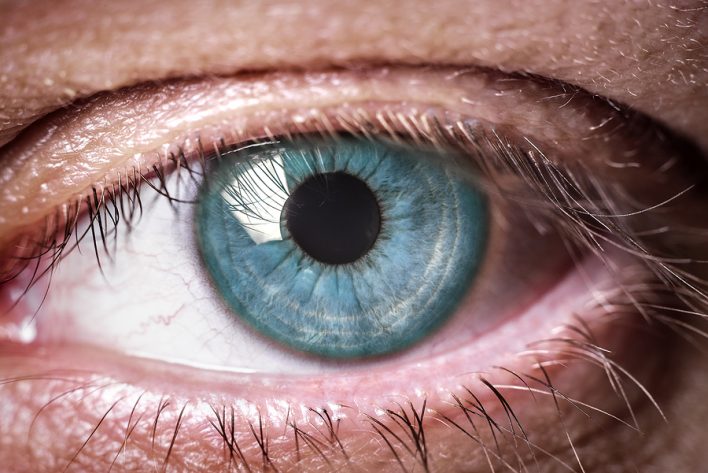Advice
What is EMDR?
By: Cynthia Ebere-Anaba
Updated: 19 July 2016

The therapeutic approach that we will focus on this week is a non-traditional method which is rising to prominence and has a track record of success.
Eye Movement Desensitisation and Reprocessing (EMDR) is a form of psychotherapy that was developed to resolve symptoms resulting from disturbing and unresolved life experiences.
EMDR is thought to imitate the psychological state that we enter into when in rapid eye movement (REM) sleep. Studies show that when in REM sleep we are able to make new associations between things very rapidly – EMDR taps into this high-speed processing mode that we all have but often can’t access. EMDR has also been found to benefit children along with adults.
The theory is that EMDR works directly with memory networks and enhances information processing by creating associations between the distressing memory and more adaptive information in other memory networks.
During EMDR the client is subjected to emotionally disturbing material in sharp, subsequent doses whilst also focusing on an external stimulus. New associations are formed and it helps eliminate emotional trauma or distress.
After successful treatment with EMDR therapy, affective distress should be relieved, negative beliefs are reformulated, and physiological arousal is reduced.
More than 30 positive controlled outcome studies have been done on EMDR therapy. These experiments have tested this non-traditional form of therapy and some results of the studies show 84%-90% of single-trauma victims no longer have post-traumatic stress disorder after only three 90-minute sessions whilst another study (funded by the HMO Kaiser Permanente) discovered that 100% of the single-trauma victims and 77% of multiple trauma victims no longer were diagnosed with PTSD after only six 50-minute sessions.
There has been so much research on EMDR therapy that it is now recognised as an effective form of treatment for trauma by organisations such as the World Health Organisation and the American Psychiatric Association.
Over 100,000 clinicians throughout the world use the therapy. Millions of people have been treated successfully over the past 25 years.
EMDR is often used for the treatment of:
- Post-traumatic stress disorder
- Depression
- Trauma
- Childhood sexual and/or physical abuse
MENTAL HEALTH PROFESSIONALS WORKING WITH Other ISSUES:
Approach: Cognitive Behavioural Therapy (CBT) , Humanistic & Integrative Psychotherapy , Psychodynamic Therapy , Other , Somatic Experiencing , Mindfulness , Person-Centred Therapy , Psychoanalytic Psychotherapy
Works with: Individual Session
Specialities: Anger , Anxiety , Bereavement / Loss , Depression , Eating Disorder / Body Image , Personal Development , Relationship issues , Self-Esteem , Stress , Trauma , Other
Next avaialble appointment: 10:00 25 February 2025
Approach: Cognitive Behavioural Therapy (CBT) , Gestalt Therapy , Humanistic & Integrative Psychotherapy , Psychodynamic Therapy , Solution-Focused Brief Therapy , Other , Person-Centred Therapy
Works with: Individual Session
Specialities: Anxiety , Bereavement / Loss , Depression , Domestic Violence / Abuse , Isolation / Loneliness , Personal Development , Relationship issues , Self-Esteem , Sexuality (LGBTQIA+) , Stress , Suicidal Ideation / Self Harm , Work Issues, Work/Life balance , Other
Next avaialble appointment: 13:00 27 February 2025
Approach: Humanistic & Integrative Psychotherapy , Person-Centred Therapy , Psychodynamic Therapy , Other , Mindfulness
Works with: Individual Session
Specialities: Anxiety , Bullying , Depression , Neurodiversity , Personal Development , Relationship issues , Self Care , Stress , Suicidal Ideation / Self Harm , Trauma , Work Issues, Work/Life balance , Other
Next avaialble appointment: 10:00 24 February 2025
NEXT ARTICLE
An interview with Stephen Watkins
Search
Get The Support You Need
From One Of Our Counselors
News
Isolation
Anxiety
Depression
Relationship Issues
Counselling
Personality Disorder
Addiction
Trauma
Children and Adolescent
Anger
Bereavement
Chronic Illness
Communication Issues
Eating Disorder
Post natal depression
Stress
LGBTQI+
Panic Attack
OCD
Resilience
Parental support
Men's Mental Health
Category List
All Posts
News
Isolation
Anxiety
Depression
Relationship Issues
Counselling
Personality Disorder
Addiction
Trauma
Children and Adolescent
Anger
Bereavement
Chronic Illness
Communication Issues
Eating Disorder
Post natal depression
Stress
LGBTQI+
Panic Attack
OCD
Resilience
Parental support
Men's Mental Health

